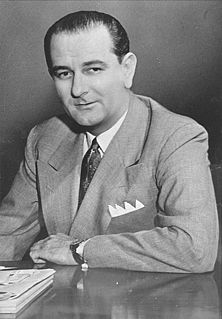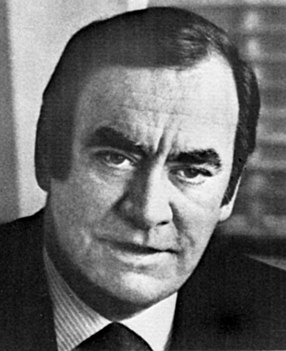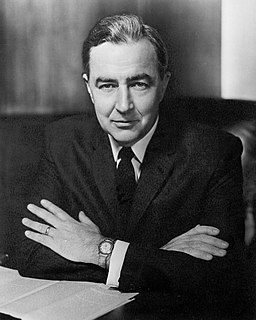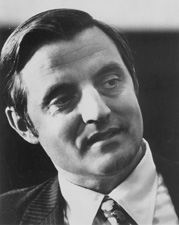
Thomas Worthington was a Democratic-Republican politician from Ohio. He served as the sixth Governor of Ohio.
Earl Farwell Dodge, Jr. was a long-term temperance movement leader and a politician of the Prohibition Party, from the U.S. state of Colorado.

The 1958 United States Senate elections were elections for the United States Senate which occurred in the middle of President Dwight D. Eisenhower's second term. As is common in midterm elections, the party in the White House lost seats, but losses this year were more than usual, perhaps due to the high unemployment of the Recession of 1958. The Eisenhower Administration's position on right-to-work issues galvanized labor unions which supported Democrats. The launch of Sputnik may also have been a factor.

The 1788 South Carolina United States House of Representatives elections were held on November 24 and November 25, 1788 to select five Representatives for two-year terms from the state of South Carolina. The elections resulted in two candidates in support of Washington's administration and three candidates opposed to his policies.

The 1962 Alabama gubernatorial election took place on November 6, 1962. Incumbent Democrat John Malcolm Patterson was term limited and could not seek a second consecutive term.

The 1920 Minnesota gubernatorial election took place on November 2, 1920. Republican Party of Minnesota candidate J. A. O. Preus defeated Independent challenger's Henrik Shipstead and the Mayor of St. Paul, Laurence C. Hodgson. Shipstead narrowly lost to Preus in the Republican primary of that year and challenged him in the general, beating the Democratic nominee but coming far short of winning the general.

The 1970 New York gubernatorial election was held on November 3, 1970 to elect the Governor and Lieutenant Governor of New York. Incumbent Republican Governor Nelson Rockefeller defeated the Democratic nominee, former UN Ambassador and Supreme Court Justice Arthur Goldberg by more than ten percentage points. On January 1, 1971, he was sworn in for his fourth term as governor.

The 1974 New York gubernatorial election was held on November 5, 1974 to elect the Governor and Lieutenant Governor of New York. Incumbent Republican governor Malcolm Wilson was defeated by Democratic Hugh Carey. Carey became the first Democratic Governor of New York since W. Averell Harriman left office in 1958 after suffering defeat from Nelson Rockefeller in the election that same year.

The 1974 Massachusetts gubernatorial election was held on November 5, 1974. Michael Dukakis was elected to a four-year term, from January 4, 1975 until January 4, 1979. He defeated incumbent Governor of Massachusetts Francis W. Sargent in the general election.

The United States Senate election of 1960 in Massachusetts was held on November 8, 1960 with Republican Incumbent Leverett Saltonstall defeating his challengers.

The United States Senate election of 1958 in Massachusetts was held on November 4, 1958. Democratic incumbent John F. Kennedy was reelected to a second six-year term, defeating Republican candidate Vincent J. Celeste.

The 1962 Massachusetts gubernatorial election was held on November 6, 1962. Former Executive Councilor Endicott Peabody defeated incumbent Governor John A. Volpe in the general election.

The 1958 Massachusetts gubernatorial election was held on November 4, 1958. Democrat Foster Furcolo was elected Governor of Massachusetts for a second term, defeating Republican Charles Gibbons, Socialist Labor candidate Henning A. Blomen, and Prohibition candidate Guy S. Williams.

The United States Senate election of 1958 in Connecticut was held on November 4, 1958. Democratic Thomas J. Dodd defeated incumbent senator William A. Purtell who ran for a second term.

The 1958 United States Senate elections in Arizona took place on November 4, 1958. Incumbent Republican U.S. Senator Barry Goldwater ran for reelection to a second term, and defeated former U.S. Senator, and then-Governor, Ernest McFarland in the general election. The election was a virtual rematch from 1952, where Goldwater defeated McFarland by a narrow margin. Goldwater had attributed the win to the unpopularity of President Harry S. Truman and popular Wisconsin Senator Joseph McCarthy endorsing his campaign.

The Chicago mayoral election of 1983 was first the primary on February 22, 1983 which was followed by the general on April 12, 1983. The election saw the election of Chicago, Illinois' first African-American mayor, Harold Washington. Incumbent Mayor Jane Byrne, who had served since April 1979 had lost renomination in the Democratic primary in a three–way race between herself, then–Congressman Washington, and then–State's Attorney Richard M. Daley in February 1983. Washington would face off against Republican nominee Benard Epton, winning with a 3.7% lead over Epton in the general election. As of 2019, this is the last election in which a Republican was on the ballot.

The 1958 United States Senate election in Minnesota took place on November 4, 1958. Democratic U.S. Representative Eugene McCarthy defeated incumbent Republican U.S. Senator Edward John Thye, who sought a third term.

The 1958 Arizona gubernatorial election took place on November 4, 1958. Incumbent Governor Ernest McFarland decided not to run for reelection and instead unsuccessfully challenged U.S. Senator Barry Goldwater in attempt to return to the United States Senate.

The 1972 United States Senate election in Minnesota took place on November 7, 1972. Incumbent Democratic U.S. Senator Walter Mondale won re-election.

In the Chicago mayoral election of 1959 Richard J. Daley was elected to a second term as mayor by a landslide margin of more-than 40%.






















